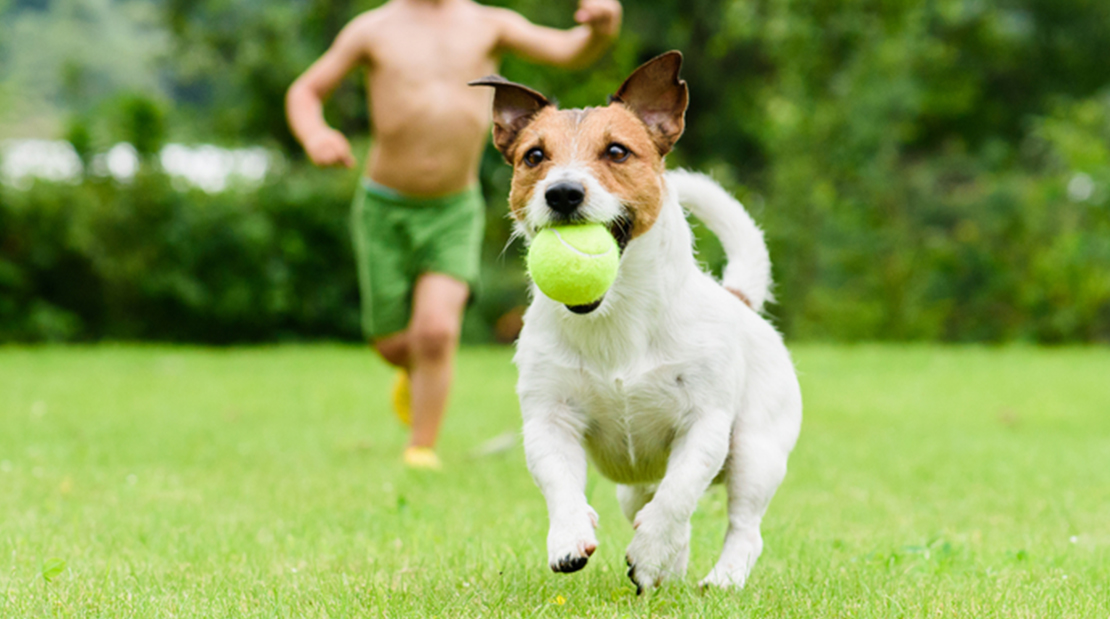
Tips on Keeping your Dog Safe this Summer
Summertime is here! Now that the weather has changed, you’re probably looking forward to spending more time outdoors. I know what you’re thinking. You can’t wait to get your dog in on the fun, right? While I’m sure your dog is just as excited to be included, our job as owners is to consider the safety of our dogs first.
As you get ready for fun in the sun, follow these tips to keep your dog happy, and more importantly, healthy.
Beat the Heat
The season has technically changed, but those of us in Houston are used to the heat. In fact, it’s the norm. Still, Houston heat kicks it up a notch during the summer, so take heed to protect your dog from rising temperatures.
For those of you outside of the southern region and for those transitioning from cool to hot temperatures, it is also important for you to be prepared for the change in climate.
Dogs tend to overheat at a faster pace than humans. If the weather seems scorching to you, just imagine how your dog feels. Intensely hot weather can cause your dog to suffer from a heatstroke, which can be fatal or cause long-term damage.
Signs of overheating or heatstroke:
- Severe, out of control panting
- Physical weakness or lethargy
- Dizziness or being in a daze
- Unsteady walking
Treating heat exhaustion:
- Always contact your veterinarian
- Apply rubbing alcohol on your dog’s paw pads
- Use water to gradually lower your dog’s temperature, but do not use cold water. Going from two extreme body temperatures will send the dog into shock.
Ways to prevent overheating:
- Do NOT leave your dog in the car under any circumstances. Dogs left in hot cars for even short periods of time, with cracked windows, can still suffer from heat strokes. Car temperatures escalate quickly and become hotter than the weather outside. If you plan to be out with your dog but suspect you’ll need to visit an environment where dogs are prohibited, it’s better to leave your pup at home in cool conditions.
- Remember to leave your home cooling system on. You may think about saving on your energy bill by turning your home cooling system off when leaving home, but those cost savings can be harmful to your dogs. Provide a cool space for your pet and plenty of fresh water.
- Don’t leave your companion outside for too long. On extremely hot days, dogs kept outdoors can succumb to the heat, even if left in shaded areas. Again, provide your pet with a cool space and plenty of water.
- Avoid strenuous exercise and long walks during daytime. Long walks should be saved for cooler times of day like early mornings or evenings.
- Have proper paw protection. The summer can come with scorching walking conditions for dogs. Hot concrete, pavement, or asphalt could leave your dog with burnt or blistering paws. You can avoid burning or blistering by walking in grass, or using protectants such as paw balm or dog booties. Paw balm is also useful as a treatment for paws that have already been affected by hot grounds.
Heart Worm and Flea Prevention
Heartworm prevention is important year-round, but is especially critical during warmer seasons. The parasites are transmitted by mosquitoes, which are more pervasive during the summer season. Heartworms can go undetected for months and can cause serious damage before owners become aware of their presence.
Several methods can be used to protect your dog from heartworms, including injections and supplements. The ProHeart 6 injection protects your dog for six months at a time. In contrast, chewable preventatives are taken once a month. If the chewable is your preferred method, I recommend setting a monthly alert on your phone or placing a reminder on your calendar.
Flea and tick protection is also important. While there’s no injection for fleas or ticks, owners can give their dogs monthly tablets or topical treatments.
Food safety
Keep dogs far away from grills. Foods like ribs or chicken contain bones that can cause stomach obstructions. Other foods may be too fatty for dogs and cause gastrointestinal issues or pancreatitis. Be aware of foods that are toxic to dogs, such as:
- Grapes
- Raisins
- Avocado
- Chocolate
- All foods containing Xylitol
With caution, you and your dog can fully enjoy this summer while also being safe. If you want or need more tips reach out to us on our Facebook, Twitter, or Instagram pages, or give us a call.

